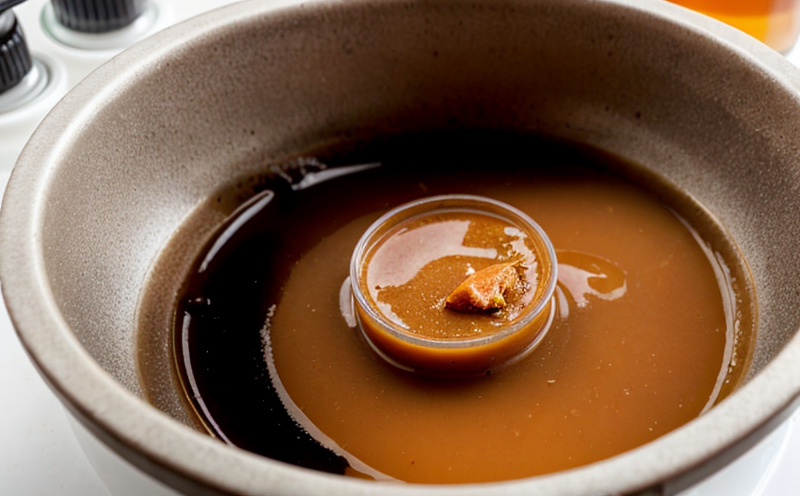ISO 21527 Yeast and Mold Testing for Sanitary Trade Compliance
The ISO 21527 standard provides a robust framework for the detection, quantification, and identification of yeast and mold in products intended for human or animal consumption. This testing is essential for ensuring the safety and quality of foodstuffs that are traded internationally between countries with stringent sanitary and phytosanitary (SPS) regulations.
Compliance with ISO 21527 is particularly important for industries such as pharmaceuticals, cosmetics, and food processing. These sectors often face strict regulations from importing countries to ensure the health and safety of their citizens. For instance, if a country like Japan or the European Union imposes stringent rules on imported goods, the exporting company must demonstrate compliance with ISO 21527.
The standard covers various aspects including sample collection methods, isolation techniques, culture media formulations, incubation conditions, and identification procedures. This ensures that all yeast and mold species are accurately identified down to their taxonomic level.
Our laboratory specializes in performing these tests under controlled conditions that closely adhere to the ISO 21527 guidelines. We employ advanced microbiological techniques such as high-performance liquid chromatography (HPLC), gas chromatography-mass spectrometry (GC-MS), and DNA-based methods like PCR-RFLP for accurate identification.
From a practical standpoint, the test involves several steps: initial sampling from the product batch, followed by pre-treatment to ensure viability of microorganisms. Once viable samples are obtained, they undergo plating on selective media, incubation at appropriate temperatures, and subsequent visualization under a microscope or through biochemical reactions.
The results provide critical information about the presence and types of yeast and mold in the product. This data is crucial for manufacturers to assess whether their products meet international standards before export. It also helps them understand potential sources of contamination so that corrective actions can be taken internally within the production process.
Understanding the implications of ISO 21527 goes beyond mere compliance; it plays a vital role in maintaining market access and reputation among trading partners. Non-compliance could lead to product rejections at ports, costly recalls, or even bans on future exports. Therefore, investing in thorough testing not only protects your business but also enhances consumer confidence.
Applied Standards
| Standard | Description |
|---|---|
| ISO 21527:2018 | Microbiology of food and feed - Determination of yeasts and molds in food products intended for human or animal consumption. |
| EN ISO/TS 22932 | Tightening measures to control microbial contamination on food contact surfaces. |
| ASTM E1886-07(2015) | Determination of viable yeast and mold in foods by plate count method. |
Why Choose This Test
The ISO 21527 yeast and mold test is indispensable for several reasons:
- It ensures that exported food products meet the stringent health requirements of importing countries.
- Avoids potential product rejections at borders which can be extremely costly.
- Bolsters brand reputation by demonstrating commitment to safety and quality.
- Provides detailed insights into contamination sources, enabling internal process improvements.
The test offers a comprehensive approach towards microbial safety that goes beyond mere presence/absence detection. By identifying specific species of yeasts and molds, it helps in pinpointing exactly where corrective actions need to be taken within the manufacturing chain.
Moreover, adherence to ISO 21527 ensures consistency across different batches of products, thereby maintaining uniform quality standards. This is particularly beneficial for large-scale manufacturers who operate multiple plants or supply chains.
In conclusion, choosing this test not only meets regulatory requirements but also contributes significantly to the overall sustainability and profitability of your business by preventing costly mistakes and enhancing customer trust.
Competitive Advantage and Market Impact
- Enhanced Reputation: Demonstrating compliance with ISO 21527 can significantly enhance your company’s reputation, making it more attractive to buyers and partners.
- Increased Sales: By ensuring product safety, you open up new market opportunities in countries demanding stringent sanitary standards.
- Lower Costs: Early detection of issues through testing reduces the likelihood of costly recalls or penalties later on.
- Premium Pricing: Products that meet high hygiene and safety standards often command premium prices, offering better margins.
In an increasingly globalized market where trade barriers are being dismantled, having a clear edge in terms of product safety becomes crucial. Our ISO 21527 yeast and mold testing service not only meets but exceeds these expectations, ensuring your products stand out in the competitive landscape.





